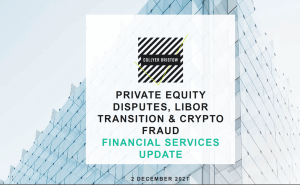- Private Equity

Longer Reads
Is your next transaction a matter of national security?
Senior Associate Robert Watson summarises the key factors in a transaction that may place it within the scope of the NSI Act and therefore subject to the review of the UK Government.
2 minute read
Published 26 April 2023
Key information
- Specialisms
- Business
- Services
- Private Equity
The potential for UK Government intervention in matters of national security is nothing new, nevertheless, the National Security & Investment Act 2021 (NSI Act) which came into force in January 2022 has fundamentally changed when such interventions can occur. Compared to the previous regime under the Enterprise Act 2002, the NSI Act provides the UK Government with a wide scope to review mergers and acquisitions activity, both in terms of the target industries and the types of relevant transactions.
In short, the NSI Act sets out to provide the UK Government with power to review, halt and on occasion rescind, transactions between parties that may pose a risk to the UK’s national security. This article summarises the key factors in a transaction that may place it within the scope of the NSI Act and therefore subject to the review of the UK Government.
Qualifying acquisitions
Only transactions completed after 12th November 2020 that involve the acquisition of a “qualifying entity” or “qualifying asset” fall within the scope of the NSI Act. Additionally, such qualifying entity or qualifying asset must be from, in or have a connection to the UK and the transaction result in the acquirer gaining a (or increasing their) level of control over the entity or asset. In brief, qualifying assets and entities can be defined as follows:
Qualifying entity
Any entity other than an individual, including:
-a company
-a limited liability partnership
-any other body corporate
-a partnership
-an unincorporated association
-a trust
Qualifying asset
-Land
-Tangible moveable property
-Ideas information or techniques which have industrial, commercial or other economic value (‘intellectual property’)
Crucially, even if located or owned outside the UK, any entity that carries on activities in the UK or supplies goods and services to the UK public, along with any asset that is used in connection with UK activities or the supply of goods and services to the UK public, can still be captured by the NSI Act.
Where a transaction does meet the criteria outlined above, notification to the UK Government may still only be voluntary. However, it becomes mandatory where the transaction relates to one of 17 economic areas that have been identified as sensitive to national security.
Sensitive economic areas
The 17 sensitive economic areas are broadly defined. This can complicate the assessment of whether the relevant entity or asset will trigger a mandatory notification. The specific areas are as follows:
-Advanced Materials
-Advanced Robotics
-Artificial Intelligence
-Civil Nuclear
-Communications
-Computing Hardware
-Critical Suppliers to Government
-Cryptographic Authentication
-Data Infrastructure
-Defence
-Energy
-Military and Dual-Use
-Quantum Technologies
-Satellite and Space Technologies
-Suppliers to the Emergency Services
-Synthetic Biology
-Transport
The UK Government is gradually increasing the available guidance for each sector to aid interpretation. However, the ambit of the act gives the UK Government a broad discretion to review transactions in line with policy developments on national security concerns.
It is important to consider that even businesses providing goods or services outside the scope of the above sectors can be captured by virtue of supplying third parties that fall within these areas. For example, catering or cleaning companies that provide on-site services to the military are likely to fall within the scope of mandatory notification for the Defence sector as a result of their access to high security locations.
Outside of obvious exposure to the 17 sensitive economic areas, a considered and thorough due diligence exercise can help to identify areas of exposure that may not be apparent in the early stages of an acquisition. It can take a long time to obtain clearance from the UK Government for a relevant acquisition under the NSI Act, therefore, it is essential to give adequate consideration to notification requirements and how they would sit in the proposed acquisition timeline.
For more information, please visit our Private Equity page.
Related content
Longer Reads
Is your next transaction a matter of national security?
Senior Associate Robert Watson summarises the key factors in a transaction that may place it within the scope of the NSI Act and therefore subject to the review of the UK Government.
Published 26 April 2023
Associated sectors / services
Authors
The potential for UK Government intervention in matters of national security is nothing new, nevertheless, the National Security & Investment Act 2021 (NSI Act) which came into force in January 2022 has fundamentally changed when such interventions can occur. Compared to the previous regime under the Enterprise Act 2002, the NSI Act provides the UK Government with a wide scope to review mergers and acquisitions activity, both in terms of the target industries and the types of relevant transactions.
In short, the NSI Act sets out to provide the UK Government with power to review, halt and on occasion rescind, transactions between parties that may pose a risk to the UK’s national security. This article summarises the key factors in a transaction that may place it within the scope of the NSI Act and therefore subject to the review of the UK Government.
Qualifying acquisitions
Only transactions completed after 12th November 2020 that involve the acquisition of a “qualifying entity” or “qualifying asset” fall within the scope of the NSI Act. Additionally, such qualifying entity or qualifying asset must be from, in or have a connection to the UK and the transaction result in the acquirer gaining a (or increasing their) level of control over the entity or asset. In brief, qualifying assets and entities can be defined as follows:
Qualifying entity
Any entity other than an individual, including:
-a company
-a limited liability partnership
-any other body corporate
-a partnership
-an unincorporated association
-a trust
Qualifying asset
-Land
-Tangible moveable property
-Ideas information or techniques which have industrial, commercial or other economic value (‘intellectual property’)
Crucially, even if located or owned outside the UK, any entity that carries on activities in the UK or supplies goods and services to the UK public, along with any asset that is used in connection with UK activities or the supply of goods and services to the UK public, can still be captured by the NSI Act.
Where a transaction does meet the criteria outlined above, notification to the UK Government may still only be voluntary. However, it becomes mandatory where the transaction relates to one of 17 economic areas that have been identified as sensitive to national security.
Sensitive economic areas
The 17 sensitive economic areas are broadly defined. This can complicate the assessment of whether the relevant entity or asset will trigger a mandatory notification. The specific areas are as follows:
-Advanced Materials
-Advanced Robotics
-Artificial Intelligence
-Civil Nuclear
-Communications
-Computing Hardware
-Critical Suppliers to Government
-Cryptographic Authentication
-Data Infrastructure
-Defence
-Energy
-Military and Dual-Use
-Quantum Technologies
-Satellite and Space Technologies
-Suppliers to the Emergency Services
-Synthetic Biology
-Transport
The UK Government is gradually increasing the available guidance for each sector to aid interpretation. However, the ambit of the act gives the UK Government a broad discretion to review transactions in line with policy developments on national security concerns.
It is important to consider that even businesses providing goods or services outside the scope of the above sectors can be captured by virtue of supplying third parties that fall within these areas. For example, catering or cleaning companies that provide on-site services to the military are likely to fall within the scope of mandatory notification for the Defence sector as a result of their access to high security locations.
Outside of obvious exposure to the 17 sensitive economic areas, a considered and thorough due diligence exercise can help to identify areas of exposure that may not be apparent in the early stages of an acquisition. It can take a long time to obtain clearance from the UK Government for a relevant acquisition under the NSI Act, therefore, it is essential to give adequate consideration to notification requirements and how they would sit in the proposed acquisition timeline.
For more information, please visit our Private Equity page.
Associated sectors / services
- Private Equity
Authors
Need some more information? Make an enquiry below.
Subscribe
Please add your details and your areas of interest below
Article contributor
Robert
WatsonSenior Associate
Specialising in Commercial, Corporate and Digital
Enjoy reading our articles? why not subscribe to notifications so you’ll never miss one?
Subscribe to our articlesMessage us on WhatsApp (calling not available)
Please note that Collyer Bristow provides this service during office hours for general information and enquiries only and that no legal or other professional advice will be provided over the WhatsApp platform. Please also note that if you choose to use this platform your personal data is likely to be processed outside the UK and EEA, including in the US. Appropriate legal or other professional opinion should be taken before taking or omitting to take any action in respect of any specific problem. Collyer Bristow LLP accepts no liability for any loss or damage which may arise from reliance on information provided. All information will be deleted immediately upon completion of a conversation.
Close



































